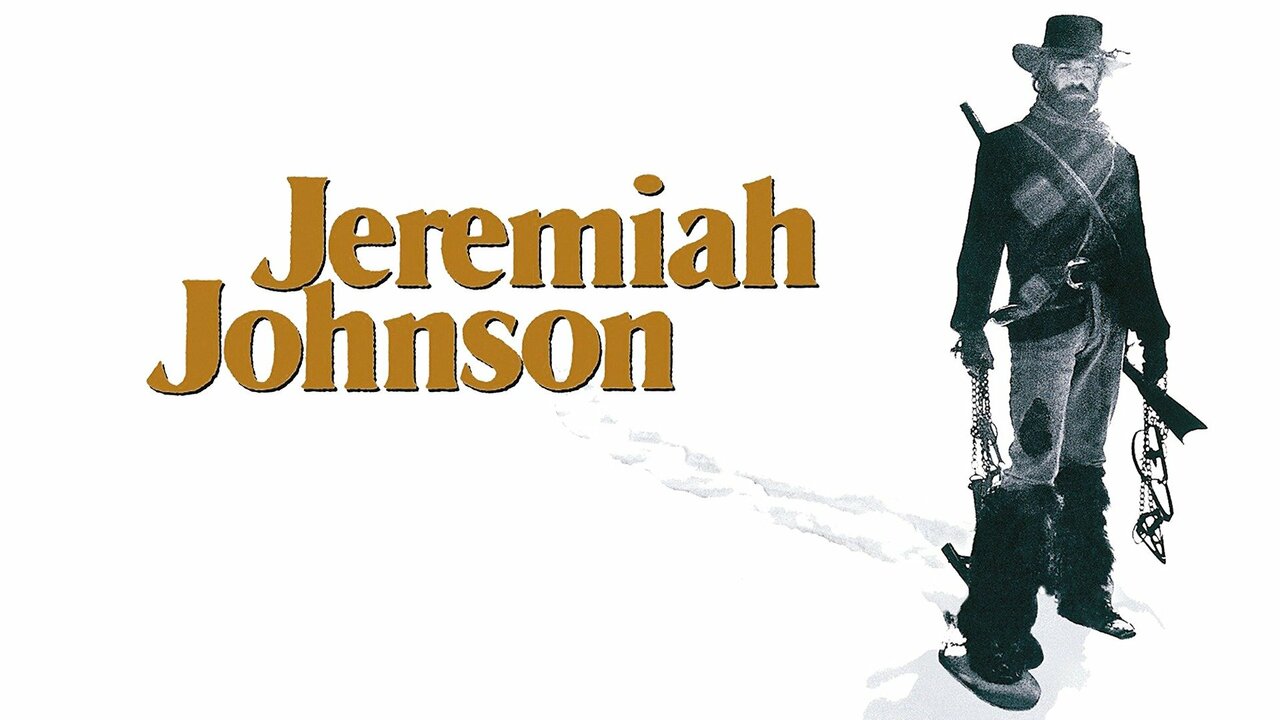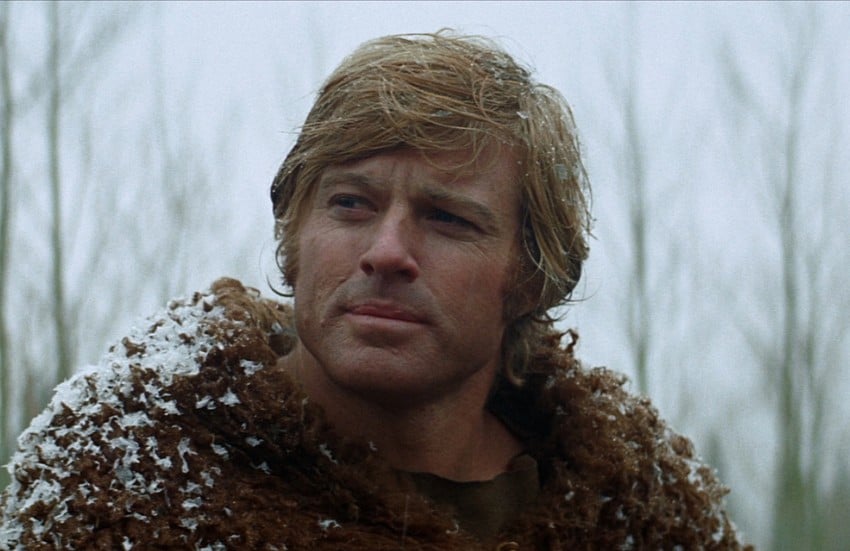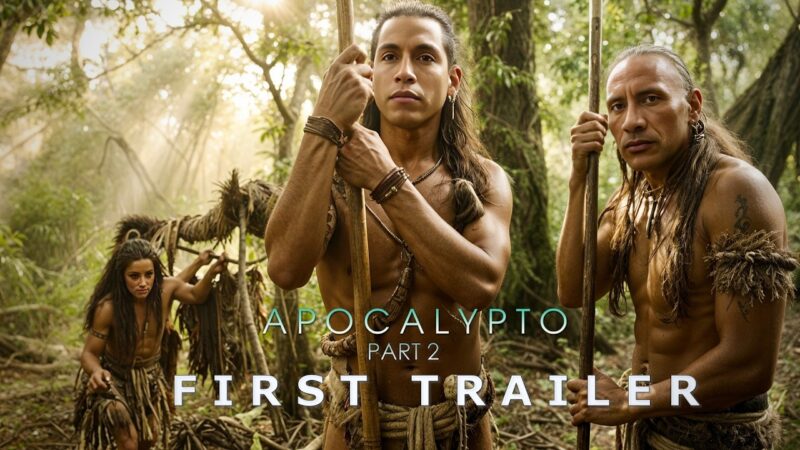🎬🎬Jeremiah Johnson (1972)

Jeremiah Johnson: A Timeless Ode to Solitude and Survival

In the pantheon of Western cinema, few films capture the raw beauty and brutal realities of frontier life as poignantly as Jeremiah Johnson (1972). Directed by Sydney Pollack and starring Robert Redford, this revisionist Western transcends the genre’s traditional tropes, offering a meditative exploration of solitude, resilience, and the human spirit. Set against the breathtaking backdrop of the Rocky Mountains, the film remains a cinematic milestone that continues to resonate with audiences over five decades later.
A Quest for Solitude in a Harsh Wilderness
Jeremiah Johnson follows the journey of its titular character (Robert Redford), a Mexican-American War veteran who, disillusioned with civilization, seeks refuge in the untamed Rocky Mountains of the mid-19th century. Aspiring to live as a mountain man and fur trapper, Jeremiah’s dream of solitude is tested by the unforgiving wilderness. From battling harsh winters and wild animals to navigating tense encounters with Native American tribes, particularly the Crow, his journey is one of survival and self-discovery.

The narrative is as much a physical odyssey as it is a philosophical one. Jeremiah’s encounters with colorful characters, like the grizzled “Bear Claw” Chris Lapp (Will Geer), a seasoned mountain man who offers wisdom and camaraderie, highlight the fleeting connections that punctuate his isolation. As tragedy strikes and vengeance consumes him, the film delves into the emotional and moral complexities of a man caught between his desire for peace and the violent realities of the frontier.
Cinematic Craftsmanship and Visual Splendor
What sets Jeremiah Johnson apart is its stunning visual storytelling. Shot on location in Utah’s Wasatch and Uinta Mountains, the film’s cinematography by Duke Callaghan captures the majestic yet merciless beauty of the wilderness. Snow-covered peaks, dense forests, and vast plains serve as both a backdrop and a character, shaping Jeremiah’s journey with their grandeur and danger. Filming in subzero conditions added authenticity, immersing viewers in the bone-chilling reality of mountain life.

Robert Redford delivers a career-defining performance as Jeremiah, blending stoic determination with subtle vulnerability. His understated portrayal anchors the film, making the character’s internal struggles palpable. Will Geer’s “Bear Claw” steals scenes with his gruff charm, while supporting characters like Del Gue (Stefan Gierasch) and Swan (Delle Bolton) add depth to the sparse but impactful ensemble.
The minimalist score by Tim McIntire and John Rubinstein, infused with haunting folk songs, complements the film’s raw, introspective tone. Eschewing grandiose orchestration, the music enhances the sense of solitude and the primal connection to nature.
A Revisionist Western with Lasting Relevance
Inspired by the real-life mountain man John Jeremiah “Liver-Eating” Johnson, the film draws from Vardis Fisher’s novel Mountain Man and Raymond W. Thorp and Robert Bunker’s The Crow Killer. While it takes creative liberties—downplaying the more gruesome aspects of Johnson’s legend—it remains grounded in the historical context of 19th-century frontier life. The film’s depiction of Native American tribes, particularly the Crow, has sparked debate for its portrayal of them as antagonists, though it also humanizes certain characters, adding nuance to the cultural tensions.
As a revisionist Western, Jeremiah Johnson challenges the romanticized myths of the American frontier. It portrays the wilderness not as a land of boundless opportunity but as a crucible of hardship and moral ambiguity. The film’s themes of solitude, resilience, and the cost of vengeance resonate in today’s world, where the search for personal freedom often clashes with societal pressures.
Cultural Impact and Legacy

Upon its release, Jeremiah Johnson garnered praise for its visuals and Redford’s performance, though some critics noted its deliberate pacing. Over time, it has earned cult status and is now hailed as a classic of the Western genre. Its influence can be seen in later films exploring isolation and survival, such as Dances with Wolves (1990) and The Revenant (2015).
For modern audiences, the film offers a timeless reflection on the human need for purpose and connection, even in the face of adversity. Its cultural significance extends to its role in elevating Utah as a filming destination and showcasing the mountain man as a complex figure in American history.
Why You Should Watch
At 108 minutes, Jeremiah Johnson is a slow burn that rewards patient viewers with its rich character study and breathtaking visuals. It’s a must-see for fans of Westerns, adventure films, or stories about the human spirit’s resilience. Available on platforms like Amazon Prime, Apple TV, or Vudu (depending on your region), the film invites you to step into a world where survival demands both strength and introspection.
Jeremiah Johnson is more than a Western—it’s a profound meditation on the costs and rewards of choosing solitude over society. As Jeremiah gazes across the mountains in the film’s final moments, viewers are left to ponder the enduring question: What does it mean to truly live free?





